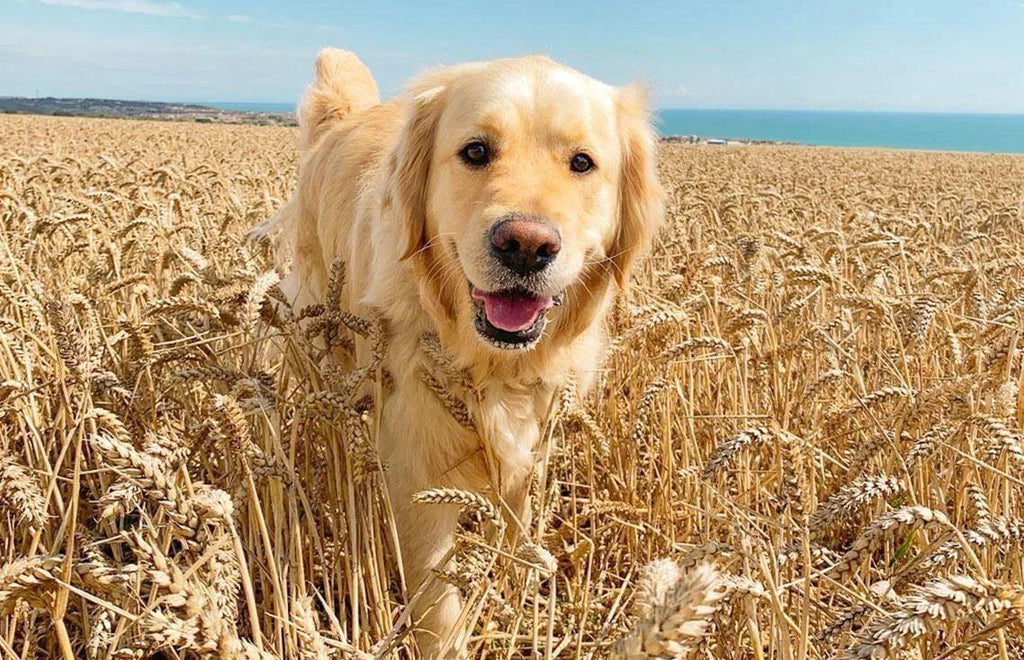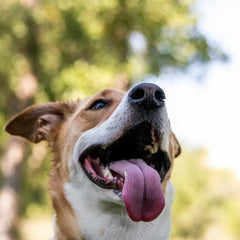Introduction
The debate around grains in dog diets has been a subject of discussion among veterinarians, nutritionists, and dog owners alike. While some swear by grain-free diets, others believe grains play a vital role in a balanced canine diet. With so much conflicting information available, it's essential to understand the truth about grains and their role in dog nutrition.
Grains in the Canine Diet: A Historical Perspective
Before domestication, the ancestors of our modern-day dogs were primarily carnivorous. However, as they evolved and started living alongside humans, their diet became more varied, occasionally including grains that humans consumed. Grains like rice, barley, and oats have been a part of traditional dog foods for decades, providing:
- Carbohydrates: For energy and activity.
- Fiber: For digestive health.
- Essential Nutrients: Such as vitamins, minerals, and antioxidants.
Debunking the Myths: Grains are not the Enemy
Many misconceptions float around about grains in dog food:
- Allergies: While some dogs can be allergic to certain grains, it's not common. Protein sources, such as beef or chicken, are often the culprits behind food allergies in dogs.
- Digestibility: Most grains, when cooked, are easily digestible by dogs and provide essential nutrients.
-
Obesity: Grains are not inherently fattening. Obesity in pets is often due to overfeeding and lack of exercise.

The Right Way to Introduce Grains
If you're considering adding grains to your dog's diet, here's how to do it:
- Start Slow: Introduce one grain at a time and in small quantities.
- Opt for Whole Grains: Whole grains like brown rice or quinoa are more nutritious than their refined counterparts.
- Cooked Grains: Always provide grains that are cooked to ensure easy digestion.
- Monitor for Allergies: Keep an eye out for symptoms like itching, digestive upset, or skin issues.
Frequently Asked Questions
1. Are there specific grains I should avoid giving my dog?
It's best to avoid giving dogs grains with gluten, like wheat, if they show signs of an allergy. Always introduce one grain at a time to monitor any reactions.
2. Is a grain-free diet better for my dog?
Not necessarily. While some dogs might benefit from grain-free diets due to specific health issues, many dogs thrive on a diet that includes grains.
3. How can I tell if my dog is allergic to grains?
Symptoms might include skin irritations, digestive upset, or changes in behavior. If you suspect an allergy, consult with a veterinarian.
The Future of Sustainable Dog Nutrition
Amidst the debate on grains, there's an innovative solution that addresses both nutrition and sustainability: insect-based dog treats from Somegrub.
Why Choose Somegrub?
- Nutrient-Rich: Insects are a powerhouse of protein, fatty acids, and essential nutrients, comparable to traditional meats.
- Eco-Friendly: Insect farming has a significantly lower environmental impact, requiring less water, land, and food.
- Hypoallergenic: Insect proteins offer a novel protein source, ideal for dogs with common food sensitivities.
Whether you're feeding grains or not, incorporating Somegrub into your dog's diet can be an excellent way to provide them with the nutrients they need while championing sustainability.
Conclusion
The decision to include grains in your dog's diet should be based on their specific needs, preferences, and any health concerns. Grains can be a healthy part of many dogs' diets when chosen and prepared correctly. And as we look towards the future of pet nutrition, innovative solutions like Somegrub's insect-based treats offer both nutrition and sustainability, proving that the best is yet to come in canine care.




